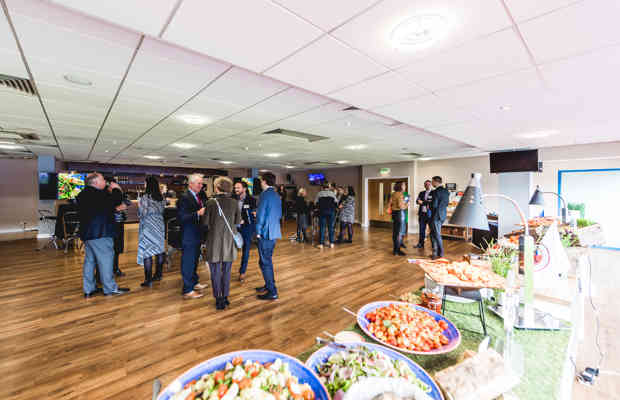Missing face to face contact?
We know how you feel. Here at Lime we’ve always championed the value of face to face connections. Over the last few weeks we’ve really been missing those magical interactions that make the world of events and events management so unique, and such an exciting industry to work in.
Today, we think the world needs human connection more than ever. It needs people who strive for deeper relationships, not just a surface recognition, but those who come at life with the enthusiasm, energy, and excitement that bind people together. These people have a powerful impact on all around them. Increasingly, the business world is beginning to realise what these sorts of connections can bring to customer interaction and to building a highly successful business.

Connecting through meetings and events
Creating a genuine face to face relationships, appreciating, and understanding the nuances of customers and client's needs, and networking will never go out of fashion.
So, here’s a little reminder of why human connections are so powerful and why - post COVID-19 - we need to continue (do more, even) to bridge the gap between technology and human touch through meetings and events.
Why human connections are so powerful
1. Communication is more effective face-to-face because you can read body language, tone, feelings, and reactions more accurately. Things can easily be misinterpreted or missed through digital interactions as 55% of the impact of our communication comes from body language, and just 38% from our tone of voice, and 7% from the words themselves.
That means that if you’re not communicating in person you may miss out on some crucial signals. These subtitles and how you react to them could potentially make or break a promising business relationship.
2. Researchers have found that people try to multitask more during virtual events. That often means reaching for their phones to catch up on other tasks, or making notes on other work, missing out on key information that you’re delivering and preventing a real connection with you and your content as a result.
Face to face interactions provide a better opportunity for real and valuable engagement, without the distractions that communicating remotely can bring.
3. Neuroscientists agree that humans and their brains and minds are shaped, and normally function, in continuous interaction with other people.
Meeting in person will contribute to your continued development and lifelong learning - introducing you to new ideas and industry insights - putting you and your events team at a competitive advantage.
4. Social interactions can enhance good health through a positive influence on people’s living habits. The emotional support provided by social connections helps to reduce the damaging effects of stress and can foster “a sense of meaning and purpose in life”.
5. Our brains are wired in a way that we experience reward during mutual social interactions and feel sensations similar to physical pain when we are socially rejected or disapproved.
Psychologist Susan Pinker states that direct person-to-person contact triggers parts of our nervous system that release a “cocktail” of neurotransmitters tasked with regulating our response to stress and anxiety making you better equipped to change. Building positive relationships with people can make a difference in how resilient you are. And we all know the power resilience when it comes to organising and hosting large and complex events to suit a wide range of attendee's needs.
6. Social contact can help to improve memory formation and recall, and protect the brain from neurodegenerative diseases - so no need to keep jotting client requests and ideas down on bits of paper that you’ll probably misplace.
7. Connecting with as many people as you can who have a positive outlook and can make you laugh and help you have been proven to be extremely beneficial. The more positive your relationships are, the better you will be able to face life's challenges.
8. Maslow hierarchy of needs puts psychological needs, love and belonging - friendship, intimacy, family, sense of connection in his 3rd tier. And dozens of studies have shown that people who have satisfying relationships with family, friends and their community are happier, have lower levels of anxiety and depression and have fewer health problems, and live longer.
Social isolation has been proven to be on a par with high blood pressure, obesity, lack of exercise, or smoking as a risk factor for illness and early death.
9. Human interaction helps our bodies and brains understand what is going on around us as it puts events in context and helps us to solve problems. It’s good when relationships challenge us, says Simon-Thomas. They can help us extend our status quo and how we see the world, she explains. “These ‘being driven crazy’ moments are truly well thought of as opportunities for growth and transformation, which can ultimately be a more poignant source of sustained happiness.”
Cooperation has also enabled us to rise to the top of the food chain. Though weaker than many predatory species, a group of humans working together can take on threats and win.
10. The neocortex is much larger in humans as compared to other primates and mammals of similar size. The neocortex comprises many of the brain areas involved in higher social cognition, such as conscious thought, language, behavioural and emotion regulation, as well as empathy and theory of mind — the ability to understand the feelings and intentions of others.
So really we have no choice but to be social creatures. We can’t help it - it's the way we’re made.





